Valentine’s Day has become synonymous with expressions of love, romance, and heartfelt gestures, often represented by a bouquet of roses. But where did this tradition come from? And have roses always been the go-to gift? This year, we invite you to consider alternative indoor plants that carry profound symbolic meanings and provide long-lasting benefits for your loved ones. Let’s delve into history, explore the symbolism of plants, and uncover why indoor plants are the perfect Valentine’s gift.
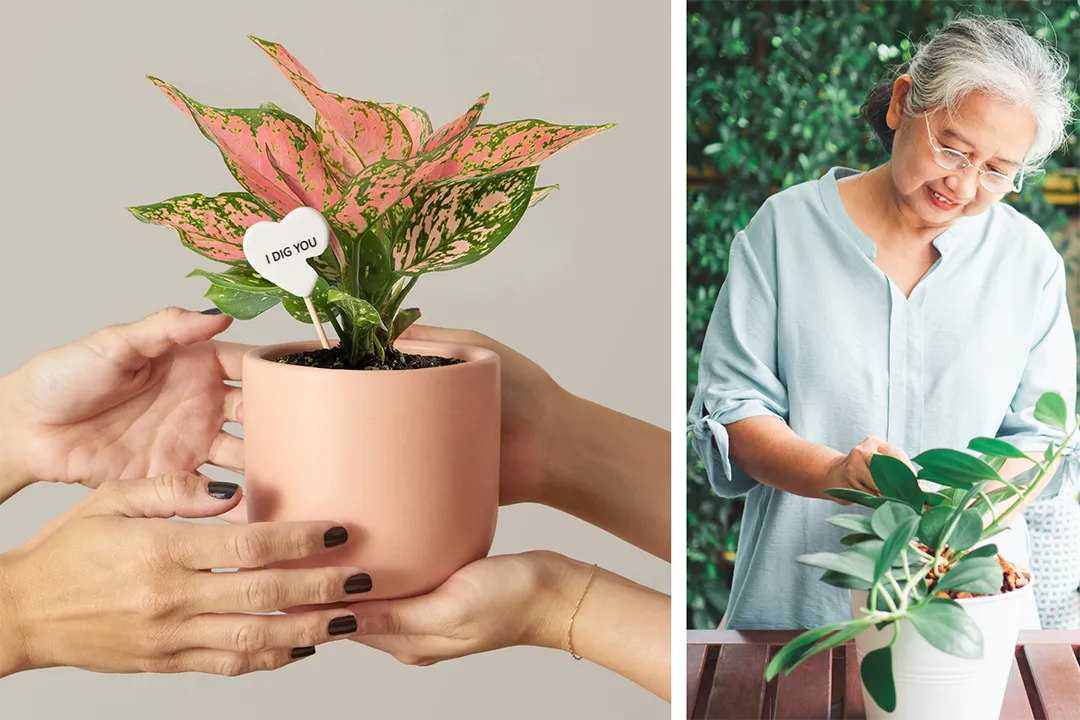
The history behind roses for Valentine’s Day
Valentine’s Day—celebrated every February 14th—has its origins in ancient Rome. The day honors Saint Valentine, a figure shrouded in mystery and associated with acts of love and compassion. By the 18th century, Valentine’s Day had evolved into a holiday celebrating romance, with lovers exchanging tokens of affection, including handwritten notes, sweets, and flowers.
The rose, specifically, gained prominence as a symbol of love due to its association with the Roman goddess Venus (or the Greek goddess Aphrodite), who represented love and beauty. In World History Encyclopedia, UK writer Sheena Harvy reports, “Aphrodite…gave the rose its name by rearranging the letters of Eros, her son and the god of love and desire.” Over time, roses became a cultural shorthand for romantic affection, further entrenched by their inclusion in poetry and art. As Shakespeare wrote, “A rose by any other name would smell as sweet,” underscoring the universal appeal of this flower. Yet, while beautiful, roses are sometimes overused. Let’s explore more unique indoor plants that will melt the heart of your Valentine.
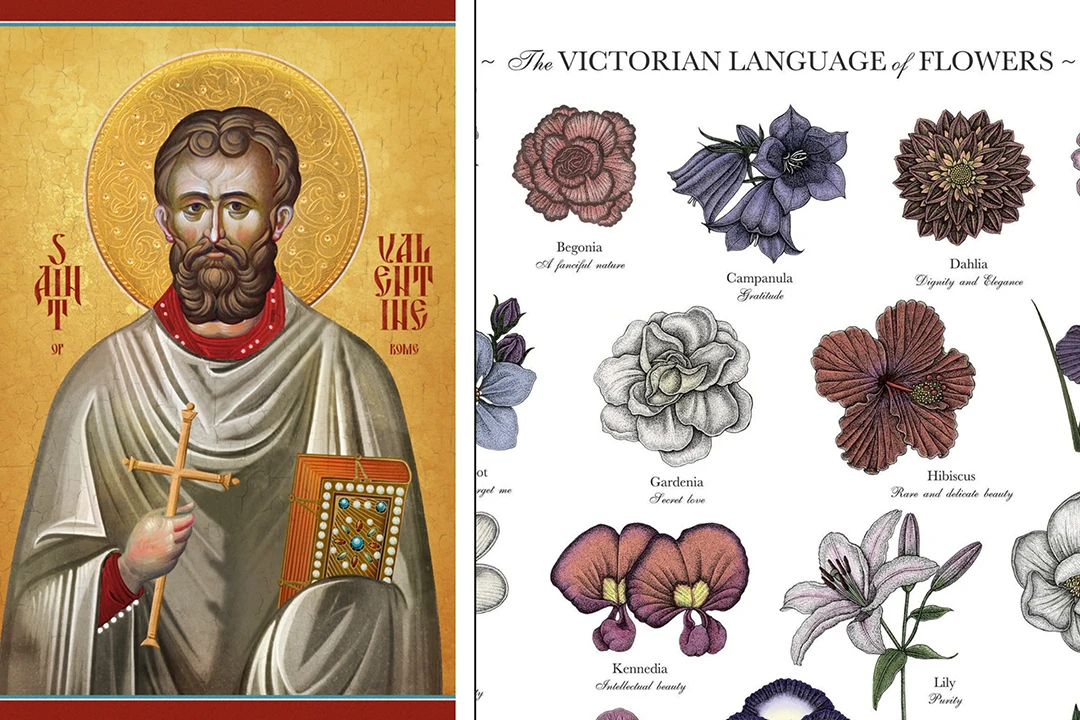
Why do humans assign meaning to nature?
Throughout history, humans have imbued plants and animals with symbolic meanings. Floriography is a fancy name for the language of flowers. Within the art of floriography, every flower carries its own special meaning or symbolism. A 2023 article in English Heritage reveals one of the first books to ever be published in the English language was a book about floriography by botanist and gardner named Henry Phillips. The practice of floriography peaked during the Victorian era when strict social norms restricted open expressions of emotion. A single bloom could convey love, friendship, or even rejection. This enduring tradition highlights our innate desire to communicate through nature.
By assigning meanings to plants, we create connections to the natural world. Modern biophilic design taps into this human-nature bond, emphasizing the role of natural elements in enhancing human well-being. Plants serve not only as symbols but also as living reminders of our emotional ties to loved ones and nature as a whole.
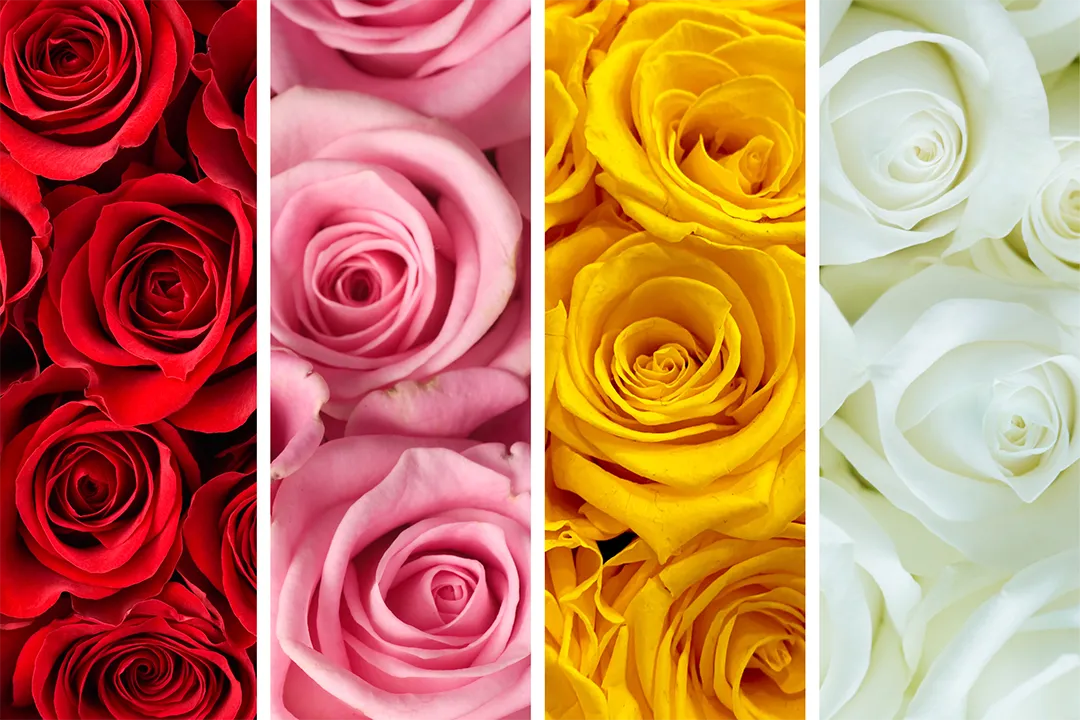
Roses and their messages
When it comes to roses, each color tells its own story:
- Red roses: Passionate love and deep romance.
- Pink roses: Grace, admiration, and femininity.
- White roses: Innocence, purity, and new beginnings.
- Yellow roses: Friendship and joy.
While roses are undeniably meaningful, they’re not your only option. Potted indoor plants offer equally powerful symbols and are gifts that keep giving, long after Valentine’s Day has passed.
Alternatives to roses: meaningful indoor plants
Consider these indoor plants as alternatives that convey the same messages as roses:
- Anthurium: These heart-shaped blooms symbolize hospitality, love, and admiration, making them a striking alternative to red roses.
- Mimosa (Touch-me-not): This plant is known for its delicate pink flowers and sensitive leaves that close when exposed to intense heat or cold. Its sensitive and dainty nature is often associated with femininity and beauty, making this plant a suitable substitute for pink roses.
- Poppies: During World War II, poppies became a symbol of peace and new beginnings after they were found growing out of soldiers’ graves. This makes the poppy a perfect substitute for white roses.
- Jade Plant (The Lucky Plant): This succulent plant symbolizes wealth and happiness, akin to the joyful message of yellow roses. It is often given as a wish for good fortune, making it a wonderful gift for intimate love that’s founded on a firm friendship.
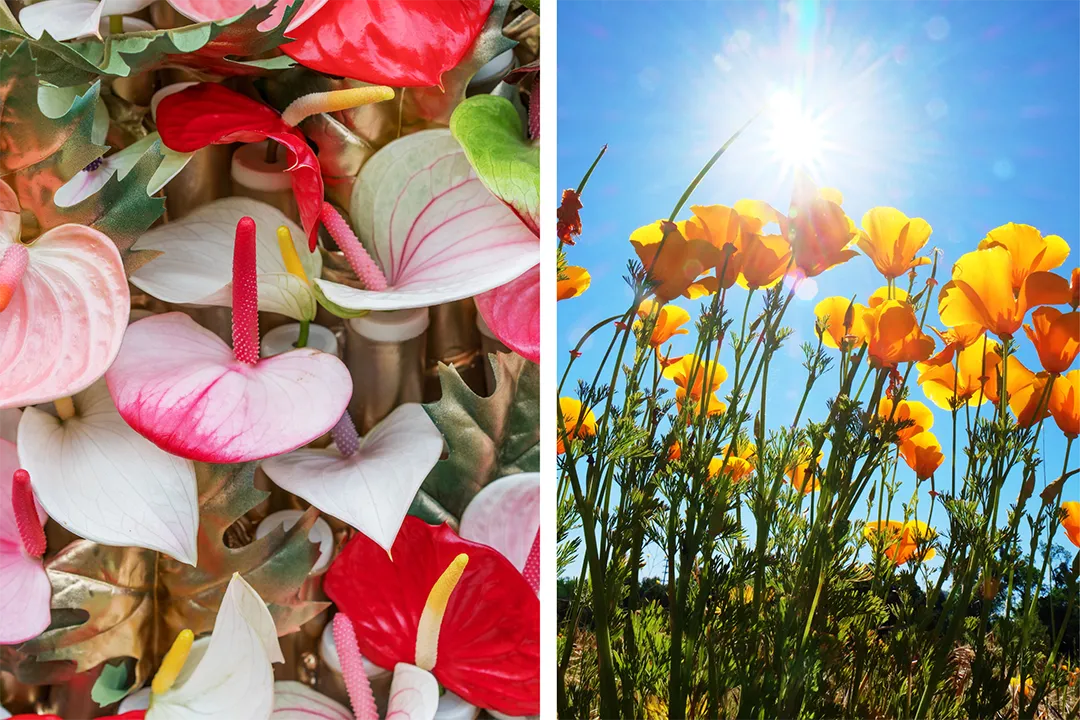
Indoor plants for platonic love
Not all Valentine’s gifts need to be romantic. Some indoor plants are excellent choices for expressing friendship and platonic love:
- ZZ Plant (Zanzibar Gem): This indoor plant is low maintenance and represents prosperity. This is because their fallen leaves take root in the soil and proliferate. It’s perfect for wishing your colleagues success and abundance.
- Potted succulents: These hardy, versatile indoor plants can symbolize endurance, making them a meaningful gift for long-standing friendships.
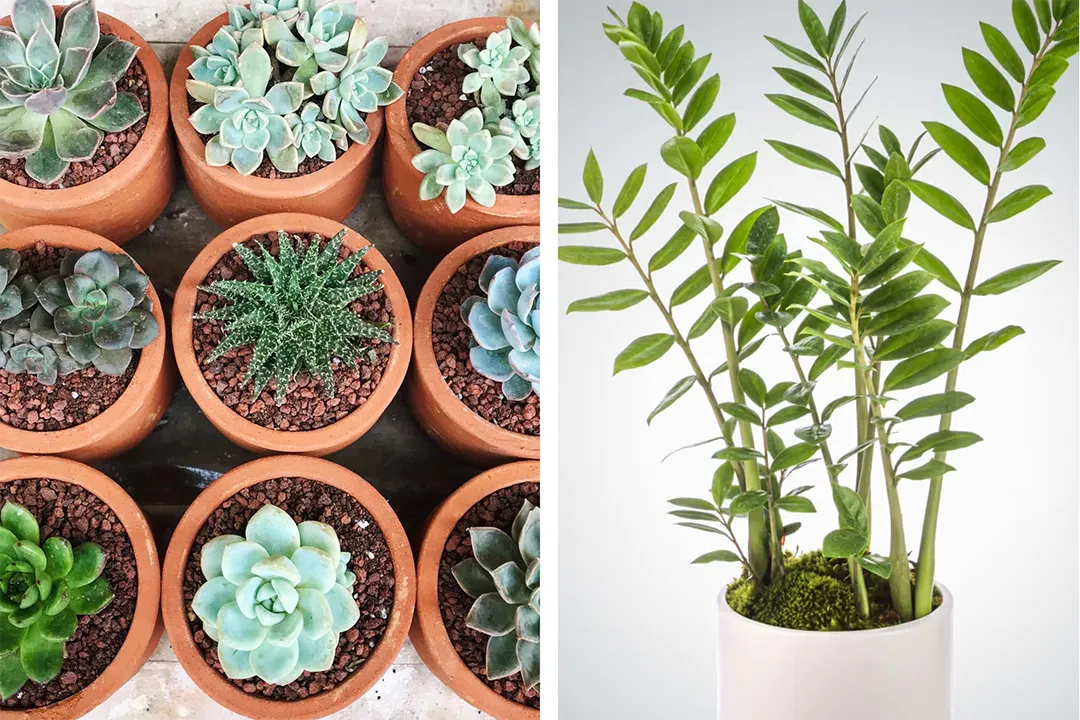
Gifting MossWallArt™ is a modern expression of loyal connection
For a truly unique Valentine’s gift, consider MossWallArt™ by Plant Solutions. These custom-designed pieces use preserved moss to create vibrant plant designs. The mosses used in MossWallArt™ take years to grow. For this reason, we believe moss represents loyalty and longstanding connection. MossWallArt™ is a transformative addition to any workspace or home – contact us to create a custom piece for your space.
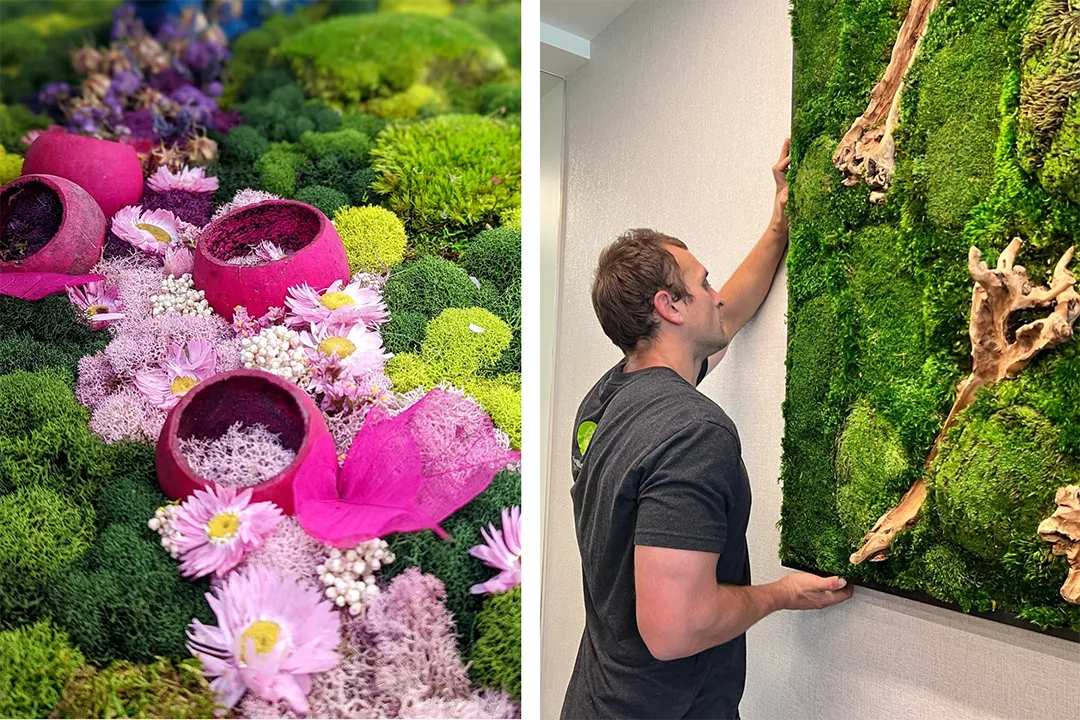
Why indoor plants are the perfect Valentine’s Day gift
As Ralph Waldo Emerson aptly said, “The creation of a thousand forests is in one acorn.” Just as an acorn flourishes into a forest, an indoor plant is a simple gift that symbolizes the flourishing of a relationship. Indoor plants are more than decorative – explore these other unexpected benefits:
- Improves air quality: Live indoor plants absorb toxins and release oxygen, creating a healthier environment.
- Enhances mood: Studies show that the presence of indoor plants reduces stress and promotes feelings of happiness. Caring for them gives us an even greater mood boost.
- Reduces noise: Did you know indoor plants are used to quiet noisy spaces? Their soundproofing ability makes them a perfect addition to large hallways and spaces with high acoustic ceilings. It’s just one of the many ways greenery helps us relax.
- Lasts for years: Unlike freshly cut roses, which fade in days, indoor plants can remind your loved ones of your affection for years. To celebrate your love’s longevity, consider making an annual tradition of gifting a new ceramic pot for your loved one’s plant each Valentine’s Day.
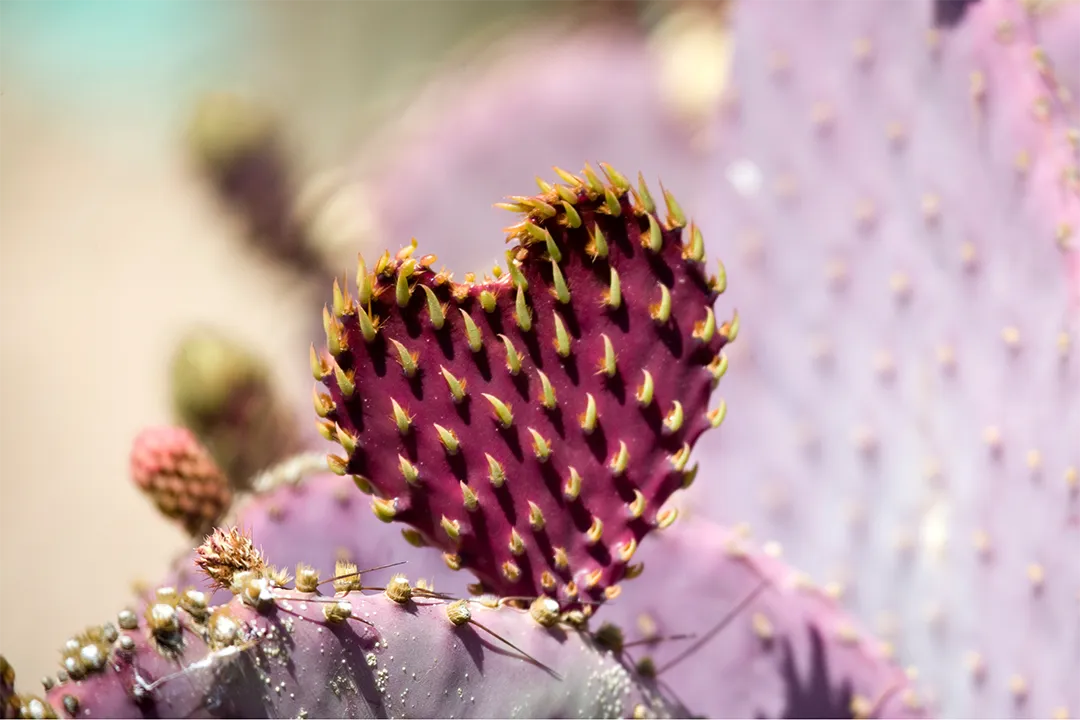
Invest in your Valentine’s happiness with indoor plants
This Valentine’s Day, break free from tradition and opt for a gift that oxygenates the air, relaxes the mind, and nurtures the soul. Indoor plants are living symbols of love, resilience, and care. Whether you choose colorful poppies to represent new beginnings or hanging MossWallArt™ to express enduring loyalty, your gifts will impact the well-being and happiness of your loved ones.
By gifting indoor plants, you’re not just celebrating Valentine’s Day—you’re reminding your cherished family and friends that you value health, beauty, and connecting with nature. Let this year be the year we admit that roses are overrated and give the gift of an indoor plant that lasts.
Celebrate love with custom plant creations
Looking for a unique Valentine’s gift? From moss walls to expert plant installations, we bring nature’s beauty into any space. Let’s craft something meaningful for you or your loved one.
